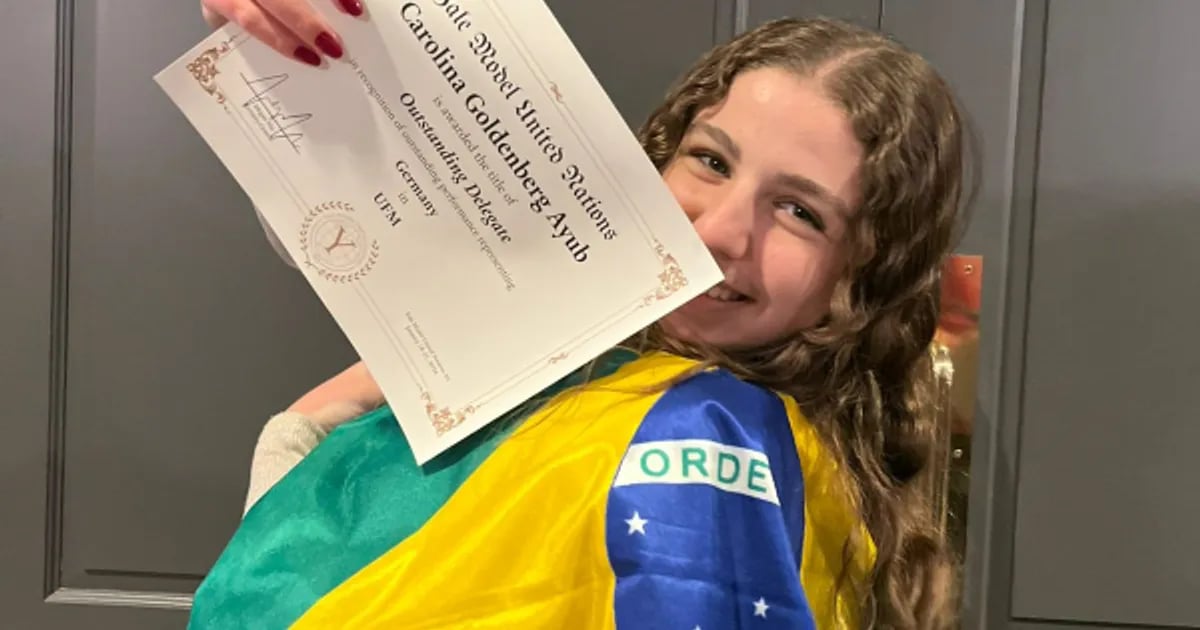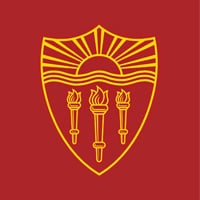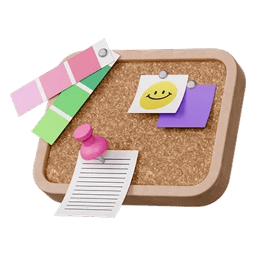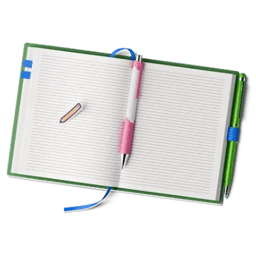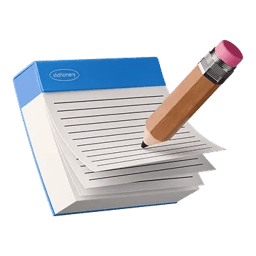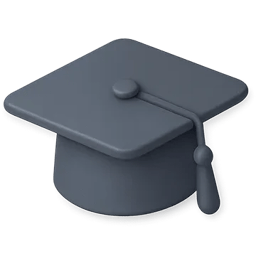Hello everyone! My name is Carolina Goldenberg Ayub and I just got accepted into the Class of 2029 of the University of Southern California! See how I did that:
My Background
I studied at Colégio Dante Alighieri, an Italian-Brazilian school in central São Paulo. While the school has Italian roots, it also had a partnership with the University of Missouri, which allowed me to graduate with a double high school diploma.

U.S. vs. Europe: Which one?
The process of deciding where to study was difficult. For a while, I considered going to Europe, mostly because I have Italian citizenship and a strong Italian background through my school. But in the end, I felt that the American admissions process was more holistic. The kinds of questions asked in U.S. college applications — like the personal statement and supplemental essays — focus more on who you are as a person, not just your intended major or academic performance. That really resonated with me.
Another reason for choosing the U.S. is that I have family in Los Angeles. My uncle lives near USC and has always been an inspiration to me, so I wanted to be closer to him and his family.
Finally, to be sure I wanted to study in the U.S, I participated in two summer programs — one at UCLA in 2023 and another at Brown in 2024. That confirmed everything for me. I knew it: I wanted to study in the U.S., and ideally, in Los Angeles.
Acceptances
Besides USC, I was also accepted to several other universities, including the University of Miami, Northeastern University, Tulane University, UC Irvine, UC San Diego, Loyola Marymount University, Boston University, Emory University, American University, University of South Florida, San Diego State University, and Cal State Long Beach University

Why USC?
Firstly, as I mentioned before, I have family living in Los Angeles, and it was really important for me to be close to them. My little cousins see me almost like an older sister, and being near them means a lot, especially since I’m an only child. I’ve grown up with a lot of care around me, but also feeling somewhat alone, so having a strong support system nearby is very meaningful.
When I visited USC during my summer program at UCLA, something just clicked. I toured several campuses while I was in California, but when I did the official USC tour, I remember feeling like a child in awe. I fell in love with the campus, I didn’t want to leave. I sat on a bench with my mom afterward, wearing the merch we’d just bought, and I kept saying, "Mom, I need to study here. I belong here." And she, realistically, said something like, "Sweetie, it’s hard to get in — this might be the only time we ever see it in person." But it stayed with me. That emotional connection was powerful.
Besides the emotional connection, USC also offers a strong academic program. I’ll be majoring in International Relations, and my long-term goals are focused more on public policy and education, so my goal is to bring better access to education to Brazil. USC has some of the best programs for this kind of path. One example is the Teaching International Relations Program, where students go into underserved public schools in Los Angeles and teach international relations. That initiative mirrors a lot of the work I’ve done in high school.
In addition, USC provides amazing internships with institutions like the European Union and the United Nations, as well as study abroad programs I can now take advantage of because of my scholarship, opportunities that might have been financially out of reach otherwise. The university also has a powerful alumni network in activism and global leadership, which aligns exactly with my vision. USC is based in a global hub like Los Angeles, but it still manages to foster values like activism, equity, and inclusion.
Finally, the school pride was also something I valued. From football games to student organizations, there’s a strong sense of pride and community. The campus itself is stunning, very safe, and incredibly walkable.
My Stats
At the time I submitted my application to USC, my GPA was 4.0. Which doesn’t mean I had straight 10s, but I was within the range that qualifies for a 4.0 under our system. It might have dropped slightly during senior year, due to the amount of work, but as I sent the application through the Early Action deadline, it was not an issue.
I didn't submit my score to USC as they are test-optional. As for English proficiency, I took the TOEFL and scored 105 out of 120.

Tips to Prepare Yourself
For the TOEFL, I didn’t really study, I just took the test. I’ve always had a strong level of English, so I felt comfortable going in. That said, I know many of my friends prepared by doing full practice tests beforehand. In my opinion, if you already have a solid grasp of English, that kind of practice is usually enough.
Now, the SAT was a different story. The biggest challenge for me wasn’t the content itself, but balancing SAT prep with the intense workload of my school. What really changed everything was when I finally committed to a strategy of studying a little every day. People often feel like they don’t have time, but I’d just sit down for 30 minutes daily, do a few math and English questions from the College Board’s Question Bank, and that already made a huge difference.
That daily routine helped me understand the patterns in the SAT, especially in the math section, which I found confusing at first in terms of standardization and content. The Question Bank questions were incredibly useful for identifying the logic behind the test. I also took full-length practice tests on weekends or whenever I had a bit more time, using both the official digital College Board tests and paper-based versions I found online. The digital tests were particularly accurate and helpful for scoring.
In terms of time management, I learned that the best moments to boost SAT studying are those quieter school weeks, when there are fewer tests or you’re between exam periods. I studied at a school with a very demanding academic schedule, so I had very limited time to prepare. I had to work hard to keep my school grades up, and that made the process tough.
Looking back, a key piece of advice I’d give is to secure strong grades in 9th and 10th grade. Those years are more manageable, and they helped me a lot when my senior year got really overwhelming. At that point, I was just trying to stay afloat. So, planning ahead and using the lighter years wisely really paid off.
Extracurricular Activities
My first extracurricular was being the founder and president of Look 4 MUN, a non-profit aimed at democratizing access to Model UN in Brazil and helping students develop debate and international relations skills. I led a team of ~50 members and grew the Instagram to over 7.2K followers. We also organized a virtual MUN conference with nearly 200 delegates. Finally, we built a WhatsApp community of 3,500+ students, with participants from Latin America, Cape Verde, Angola, and Portugal.
I was also the co-founder of ONU Girl Up, a club focused on women's empowerment in politics through the lens of the United Nations and international relations. But it was way more than just that, as an example, we collected over 1,200 signatures for an environmental bill to protect the Amazon and were awarded by the University of Missouri.
Additionally, I was the project coordinator of a volunteer group in my school called "Notinha Solidária." We were associated with GRAAC, a childhood cancer institute, to collect and convert receipts into donations. We raised over 62,000 reais in donations over two to three years, and manually entered over 43,000 receipts.
As my fourth extracurricular, I was the academic director of a project created to support underprivileged students through scholarships, events, and training for international MUN conferences – Instituto Jovem Brasileiro. I helped raise $10,000 in scholarships and received multiple awards and recognition within the delegation.
In fifth place, I was a mentor in a program called "Brazil at Harvard." I first participated as a mentee in 2023, and, in 2024, I prepared Brazilian students for MUNs at Harvard and Yale.
I was also deeply involved with Model United Nations. I served as both Head Delegate and Secretary-General at my school’s MUN club and chaired 12 MUN conferences. Over the course of my participation, I earned several national and international MUN awards. Additionally, I had the honor of being the director at Yale MUN LATAM.
I was a social media manager at ISAP Brazil, an international education support platform. I was selected to represent ISAP in a Rio de Janeiro conference and was also named the program’s first-ever “Ambassador of the Month.”
Furthermore, I served as the elected class representative for all years. During this time, I worked closely with both students and faculty to address any concerns and ensure that our class’s voice was heard. In addition to this role, I was a peer tutor throughout high school, assisting classmates in Humanities and Math subjects. My efforts helped many of my peers improve their academic performance across multiple semesters.
I also dedicated seven years to playing volleyball, competing as an outside hitter for both my school team and the Círculo Militar club. Throughout my time in the sport, I had the opportunity to compete in several local tournaments, earning awards for my performances. However, I eventually stepped back from volleyball to focus more on my academic and leadership pursuits during my senior year.

Personal Statement
The theme of my personal statement was my journey with public speaking and how I learned to believe in the power of my own voice. I started by talking about how, when I was younger, I was always very talkative. As I explained earlier, I was the youngest in my family, and during family gatherings, I would perform for them, give speeches, and make presentations. I always enjoyed speaking. This was also very clear at school, where I was the kind of student who participated a lot in class discussions.
However, as I grew older, I became interested in political and current events topics. When I was a teenager, I spoke about these issues and always identified as an activist. In fact, I was even labeled as “chatterbox.” But people started losing interest in what I had to say, and they began to find me annoying. I was talking too much, or I was considered "too boring" because I wanted to talk about things like the plot twist in Fight Club, while others only cared about parties, and so on. I wrote about this in a way that didn’t portray me as “different from other teens” or anything like that. It was a very sincere expression of how I started to feel embarrassed about what I was saying, about how I expressed myself, and so on. I began to feel very lonely in that sense.
Then, my father told me a phrase that I carry with me to this day, and it’s the reason I love my personal statement so much: “quem tem boca vai a Roma” (those who have a mouth go to Rome). I literally wrote this phrase in Portuguese in my personal statement and translated it in a way that made sense for them. This phrase stuck with me because it truly helped me regain my confidence. Slowly, I became involved in the UN, started debating, and I realized that it was my voice leading me to places. It was, in fact, my voice that took me abroad and allowed me to achieve all the things I’ve accomplished in this process.
I think what made my personal statement stand out is that I told this story as if it were a trip to Rome. For instance, when I was a child, I was in the place where I was born, and then during my adolescence, I was taking the train. At a certain point, when people started silencing me and I began to stay quiet, the train stopped, and the lights went out. I was stuck in the middle of this journey. It was only when I regained my confidence and naturalness that I could finally see Rome, see the Coliseum, and arrive there.
So, I structured it as if it were a travel guide, and I think it was really cool because it’s a relatively simple story that many people can relate to. However, I think the structure and the way I told it made it very personal. I ended up writing seven versions of my personal statement, each about different stories. In all of them, I would say something like, “This might be what they want to hear, but it’s not what I’m enjoying writing.” When I had the idea of this travel analogy, that was when I thought, “Wow, ‘who has a mouth goes to Rome,’ right?” That’s when everything started to flow, and I wrote it in one day. It was really great!
Financial Aid: Trustee Scholar
Although I didn’t apply for need-based financial aid, I made sure to apply for almost every merit scholarship available to me. I applied to USC through Early Action, as they only offer merit scholarships to international students who apply this way. I submitted my application by the November 1st deadline, which, by the way, was the first application I completed. I could have taken the rest of the year off, but I decided not to. On January 17th, I received the wonderful news that I had been accepted. I was beyond happy—still in disbelief, honestly. But then, the reality set in: “Wait, I can’t afford this!” Fortunately, that feeling of disappointment didn’t last long. On January 29th, I received an email saying I had been selected as a finalist for two major scholarships—the 50% tuition Presidential Scholarship and the 100% tuition Trustee Scholarship. To determine who would receive which scholarship, they required an interview, which was the only part of the process that differed from a standard application.
The selection process for Early Action applicants was unique. USC itself made the decision, not based on individual preferences, but on merit-awarding scholarships to the students who truly deserved them. On February 10th, I had my interview. It was such a great experience, and I had a lot of fun. The interview panel consisted of three people—two from the Admissions Office and one student. They asked dynamic, engaging questions. I’ll admit, I had prepared extensively for the interview. I had researched the university, my course, available opportunities, and how I could leave a lasting impact at USC. I was very self-aware and well-prepared, which made the process easier and more enjoyable. The questions they asked didn’t catch me off guard—everything felt spontaneous but in a comfortable way. It was a great conversation, and I enjoyed every moment of it.
A month later, USC didn’t specify when they would announce the results, only that it would be close to the regular decision timeline. On March 14th, I received the email that I had been selected as a Trustee Scholar, and I was awarded the full tuition scholarship.

